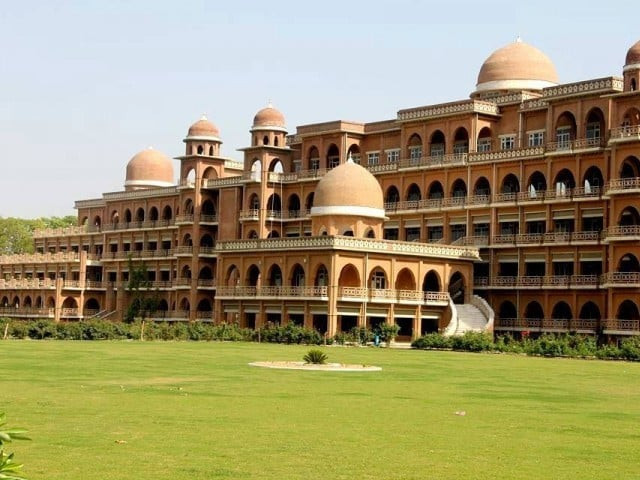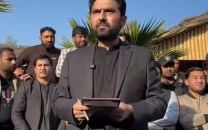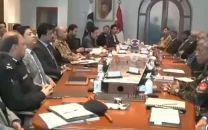UoP employees awaiting salaries
Reckless expenditure on irrelevant services has created a huge deficit in the institution’s finances

Where sky-rocketing inflation has complicated every salaried person’s budget, employees working at the University of Peshawar are confronting an aggravated financial crisis, as they continue to face an unwarranted delay in the crediting of their monthly salaries. Despite the public varsity collecting a handsome revenue on a monthly basis through payments made against students fee vouchers, the well-established higher education institution has been unable to pay off monthly salaries to numerous lower level employees, who find themselves in an unanticipated financial quandary, as they struggle to choose between putting food on their tables and supporting their children’s education.
In this regard, Shahnawaz Khan, an employee of the university, who is yet to receive his salary for July, expressed his discontent and worry, while talking to The Express Tribune. “I have to pay rent and my children’s school fee on a monthly basis. If my monthly salary is delayed, how will I guarantee shelter and education for my children, when even the provision of food has become difficult?” begrudged Shahnawaz. “The university has no problem spending extravagantly on unnecessary activities like protocol services but when it comes to giving hardworking employees the fruit of their labour, they turn a blind eye,” he added.
Conceding to Shahnawaz’s outcry, Arif Khan, former president of the University of Peshawar Teachers Association (PUTA) confirmed that the varsity spent billions of rupees on protocol services. “When the university spends so much on irrelevant services, how can it afford to pay off the monthly salaries and pensions, which amount to almost Rs 300 million,” questioned Khan. “The Vice Chancellor of the university had assured that he would resolve the issue of salaries, but he decided to leave for a vacation and the financial dilemma facing the university continues unabated.” According to Suliman Khan, Secretary for PUTA, the financial dilemma that Arif mentioned is in billions.
“The University of Peshawar is currently facing a financial deficit of almost Rs 2 billion,” he informed. When asked why the varsity was facing such a financial crunch, Suliman opined that the introduction of smaller district level colleges across the province had led to a drop in the enrolment at the institute and had badly affected its revenue collection. “The university charges more than Rs 50,000 for each course of a degree whereas other colleges are now offering entire degrees in the same amount. It is no surprise that students choose to opt for the latter,” the Secretary said.
Furthermore, Suliman also believes that the partial implementation of the 18th amendment in Punjab and Sindh only, meant that the provincial Higher Education Commission (HEC) was not functional in Khyber-Pakhtunkhwa (KP), therefore the sole source of funding for public universities in the province was students’ fees.



















COMMENTS
Comments are moderated and generally will be posted if they are on-topic and not abusive.
For more information, please see our Comments FAQ